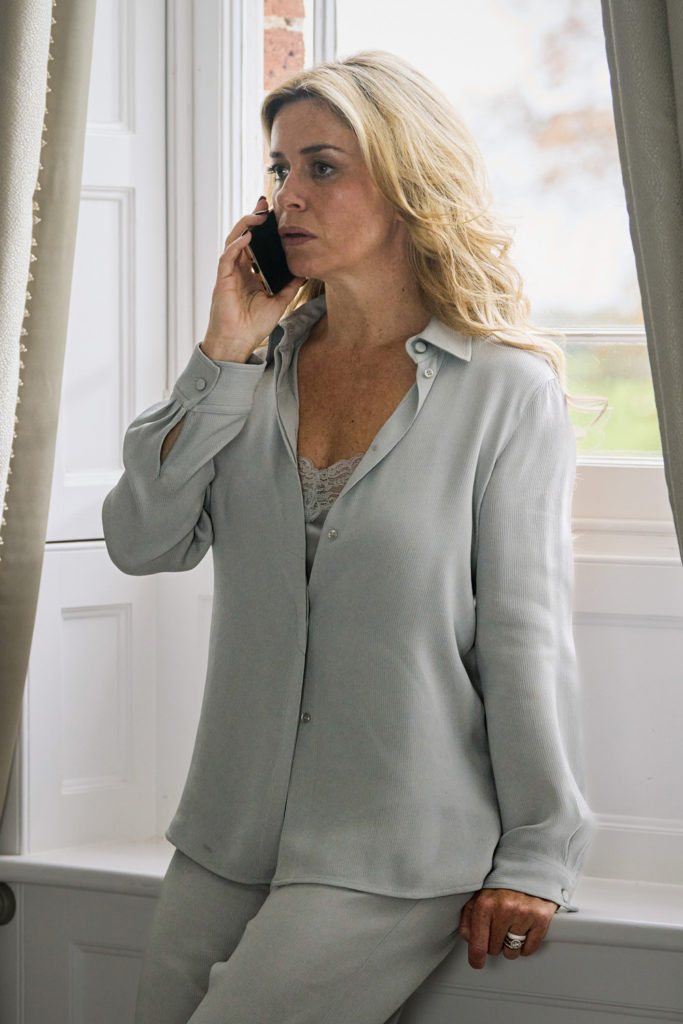Green Therapy: How To Lessen Your Carbon Footprint At Home
By
2 years ago
Lucy Cleland meets the UK's first green lifestyle coach
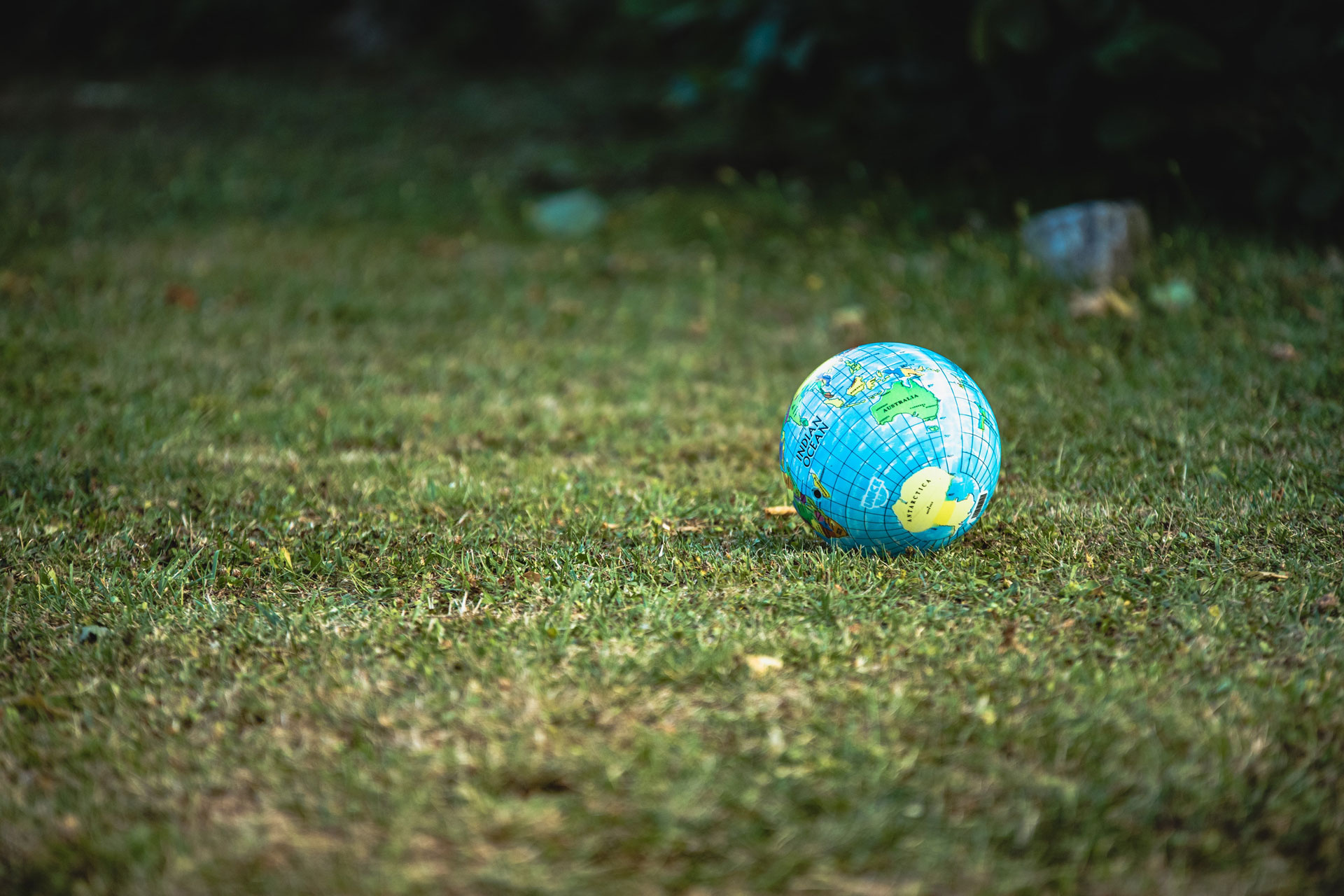
How a session with the UK’s first green lifestyle coach not only guided Lucy Cleland into taking action around lessening her carbon footprint at home, but also helped alleviate her eco-anxiety.
Lucy Cleland Meets The UK’s Only Green Lifestyle Coach
It was like the night before an exam. I didn’t sleep well. What would she find? A thousand plastic bottles clogging up my bathroom; toxic cleaning chemicals under my sink; coffee capsules that say they’re compostable but clearly are not; and, god forbid, a boarding pass stub from a recent trip to the Maldives (eek).
But, I reasoned with myself, I do care, I write about sustainability all the time, I talk to anyone who will listen about clothes made from recycled plastic bottles (greenwash), microplastics (everywhere, including our brains and our breast milk), insect armaggedon, regenerative agriculture… I’ve read Jason Hickel’s Less is More, applaud Kate Raworth’s Doughnut Economics and the Knepp Estate is my idea of paradise. Why then hadn’t this translated into better personal practice? Because sometimes I think we’re all going to hell in a handcart, so why the heck does carrying a refillable coffee cup or not buying that top you fancy from Zara matter in the first ruddy place? It makes no bloody difference. Humph.
I’m suffering a classic bout of ecophobia, it turns out, as I sit down with Britain’s first green lifestyle coach, Lucy Johnson from Green Salon, to drink coconut milk lattes (natch) at my kitchen table. She’d come to give me a personal energy audit (no, not my chakras, my gas and electric) and to have a poke around my drawers to see the state of my so-called ‘green lifestyle’ (in the most gentle of manner, of course) with a view to guiding me on how to reduce my personal carbon footprint. However, it’s actually Lucy’s skills as a trained psychotherapist that make this session deeper than just changing my shampoo brand. Just as fears and anxieties held from trauma and unreleased emotion can lead to mental health problems, ecophobia can have the same effect. ‘When I work with clients,’ says Lucy, ‘their biggest issue is their sense of powerlessness in the face of the inevitability [of climate change]. Denial strategies keep us stuck in the same patterns but research proves that giving people agency [over their lives] makes us happier. It is this transformation work that gives us the confidence to take responsibility, and makes us feel more powerful and less distressed.’
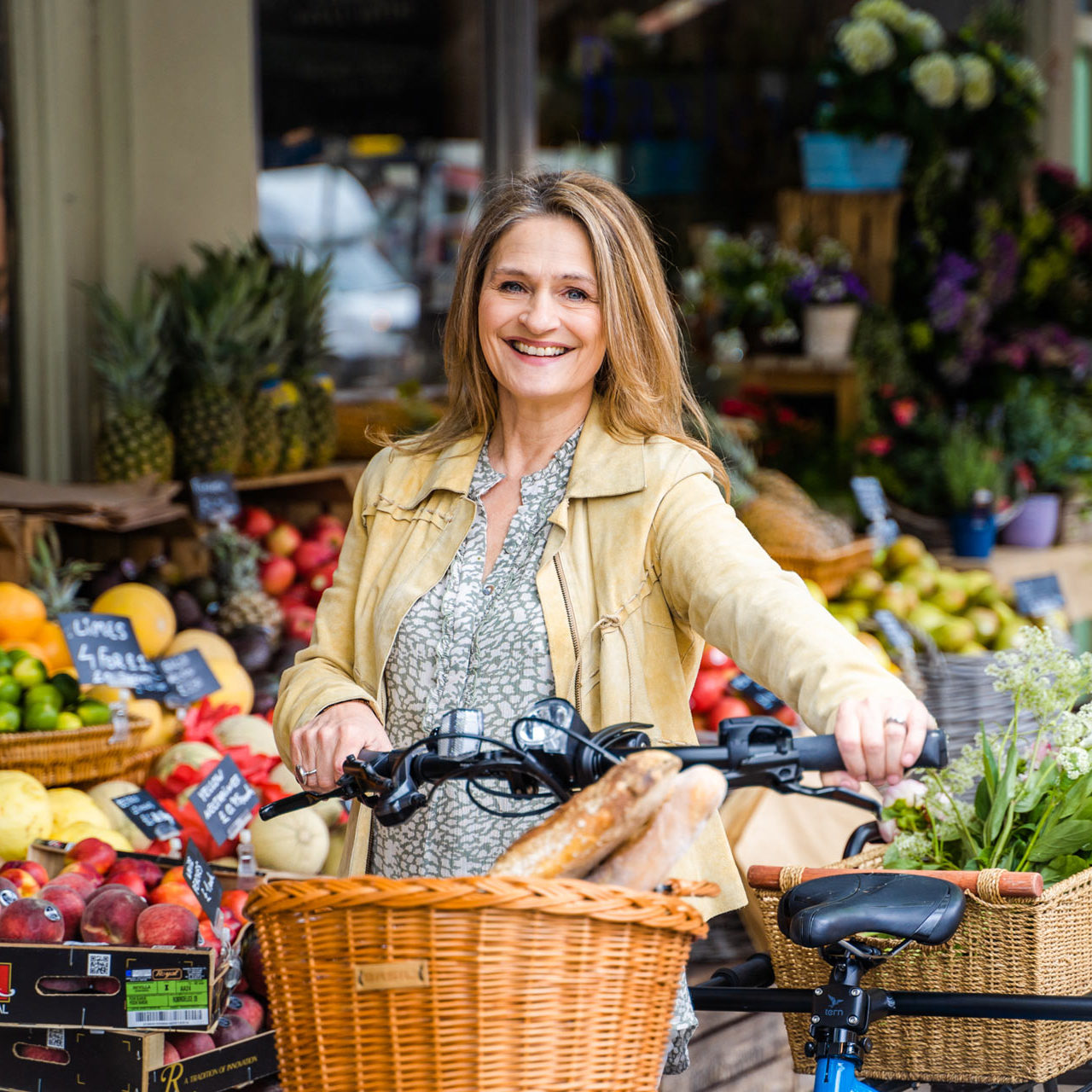
Lucy Johnson, by Vicki Knights
This is big stuff. She goes on to explain that when we function in systems that take us away from our inherently human values – models of extraction and exploitation (see industries such as fast fashion, ultra processed foods, industrial farming etc), this causes cognitive dissonance, i.e. a disconnection from our true human selves as collaborative, nature-loving, creative, and what we really believe and feel. ‘When we are able to bring our values into our behaviour we reconnect with our authentic selves and are happier [and healthier] as a result,’ she smiles.
Ah, so we have to learn how to become human again. I told you this was big. We don’t just want – we obviously need – clean rivers to drink from and swim in; rich, healthy soil in which to grow nutritious food and crops from which to make our clothes; and time to spend in nature. We may take, but we give back through practices that regenerate – and we know giving is juicier for the soul than taking. And even if we can’t all grow our own organic food, spin wool, or individually clean our rivers, we can consciously spend our money with brands, products and companies that do take their responsibilities seriously – or protest when they don’t. Right then, action stations.
Lucy’s offering to her clients is two-fold; she’ll come to your home to find out what current habits, products and practices you have in place, from your heating system to where you do your shopping; then she’ll talk you through the small, big, easy and more difficult wins you can implement to lessen your carbon footprint and, within a week or two, will send a brilliantly helpful, in-depth yet easy-approach action plan. There will also be follow-up Zooms. As a client you can happily bring up all your worries from the macro (‘we’re all going to die’) to the micro (‘what’s the most eco washing up liquid? And no, it’s not Ecover’) and she’ll calmly and pragmatically talk you through it.
Did you know, for example, that our homes account for 25 percent of our carbon footprint and yet an average of 25 percent of our energy is lost through not having them insulated properly (especially the roof)? And that there’s a phantom two or three weeks of charges added to your bill (and energy consumption) when we leave our TVs, monitors, game consoles etc on standby all the time? Or that a house with an EPC A energy rating (the gold standard) is the sexy new equivalent of an Aga and an inglenook fireplace? It’s what everyone wants, so there’s a big premium to add to your house value.
Lucy is sensible to the fact that clients also don’t want to become a nag (I am definitely the eco Nazi in my house). ‘Turn off the tap.’ ‘Turn off the lights.’ ‘Don’t watch TV and be on your computer and your phone!’ ‘Bugging everyone turns everyone off,’ she says sagely (you’re telling me). ‘It’s discreet little systems that work.’ Like what? Like buying timers for your plugs (all set to turn off overnight when you’re not using them), replacing old light bulbs with LEDs (which use at least 85 percent less energy, and last up to 25 times longer than incandescent ones), and getting smarter with your food shopping and waste too.
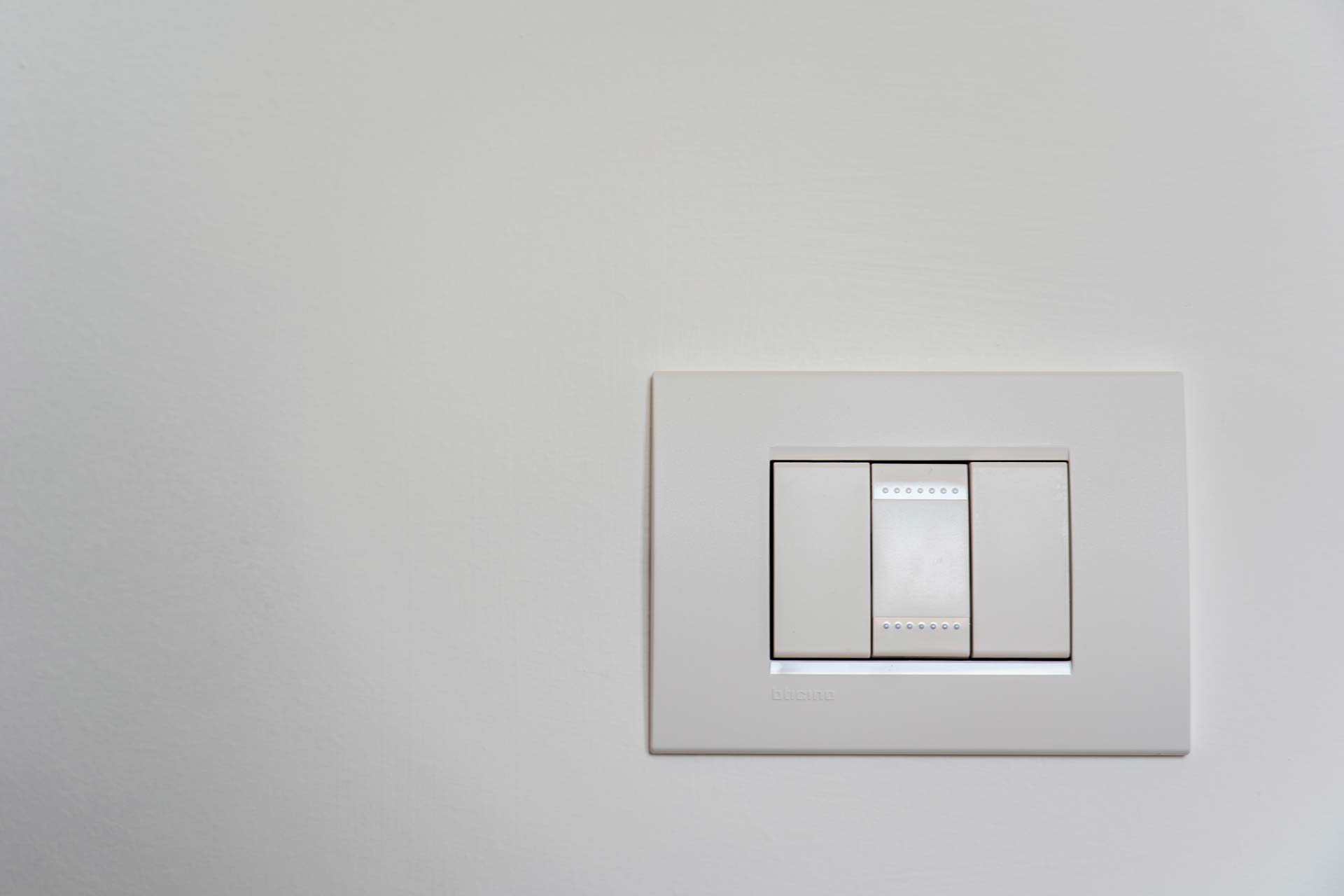
‘We’re not eating enough fibre,’ says Lucy, as we talk about the hype over Dr Chris van Tulleken’s new book Ultra-Processed People (read it, it will change the way you think about food profoundly). You get good fibre from vegetables. And, ideally, organic ones or failing that, seasonal. She tells me that a whopping eighty-three percent of food miles comes from the production (through the use of fertilisers and nitrous oxides and getting that there in the first place), whereas only 11 percent comes from the transport (as long as it’s by truck). This means that you need to check where the sun’s shining – it might actually be better buying naturally Spanish-sun ripened tomatoes, transported by land, than English ones that have been intensively farmed. Local isn’t always best.
The bathroom and kitchen are inevitably easy-win rooms. Ditch your toxic cleaning agents for ones from Delphis Eco, or Smol, which delivers plastic-free washing and dishwasher tablets on subscription. Toss your nasty green plastic scrubber for a biodegrable bamboo one from Seep. Swap your Colgate for Parla toothpaste tablets. I might even try the shampoo bar from Nope, which Lucy swears froths into a nice lather (others tend not to). Plastic deodorant bottles with harmful aluminium in the ingredients? Pah, set up a Wild subscription to deliver delicious, eco-friendly and effective refills to pop in your pretty tin.
Green Salon also offers wardrobe edits and ideas. My sagging rail is my personality in fibre (both wool and nylon). Dresses for thin days. Coveralls for fat days. Trusted, holey jumpers. Glittering designer threads rashly bought in sales. But, with a slow styling session, you’ll get a fresh eye on style combos you wouldn’t have thought of, an understanding of what makes you shine so you can appraise your purchases or rentals from a confident position of knowing what works for your body shape, plus tailoring nip and tuck ideas to breathe new life into things you keep out of nostalgia rather than style.
So there you go. Whether you’re a fully paid-up or just an occasional ecophobe and wondering what the point of changing any habits is, the answer is to act, not wallow in fear and procrastination, because, quite frankly, that is going to help no one at all – least of all you. We may not be saving the world individually by cutting down on meat, not buying fast fashion, and insulating our roofs, but harness all those individuals’ change of mindset, energy and humanity in one and maybe we have a shot. And you might just cut down on your therapy bills, too.
For more sustainable swaps that have been vigorously examined, and to book Lucy for a coaching session, from £850, visit greensalon.co.uk.
5 Ways To Lower Your Carbon Footprint At Home – Immediately
Change Your Energy Provider
If you aren’t already with a renewable energy provider, this is an easy and effective win. Octopus Energy, for example, is ranked in the second tier of eco energy providers by Which? and is cost competitive with the big six energy providers. octopus.energy
Insulate Your Loft
A high-impact gain, given how much heat escapes through the roof. Mitchell & Dickinson specialises in insulating period and listed homes with thermofleece and takes sustainability seriously. Be warned, they’re in high demand. mitchellanddickinson.co.uk
Go Solar
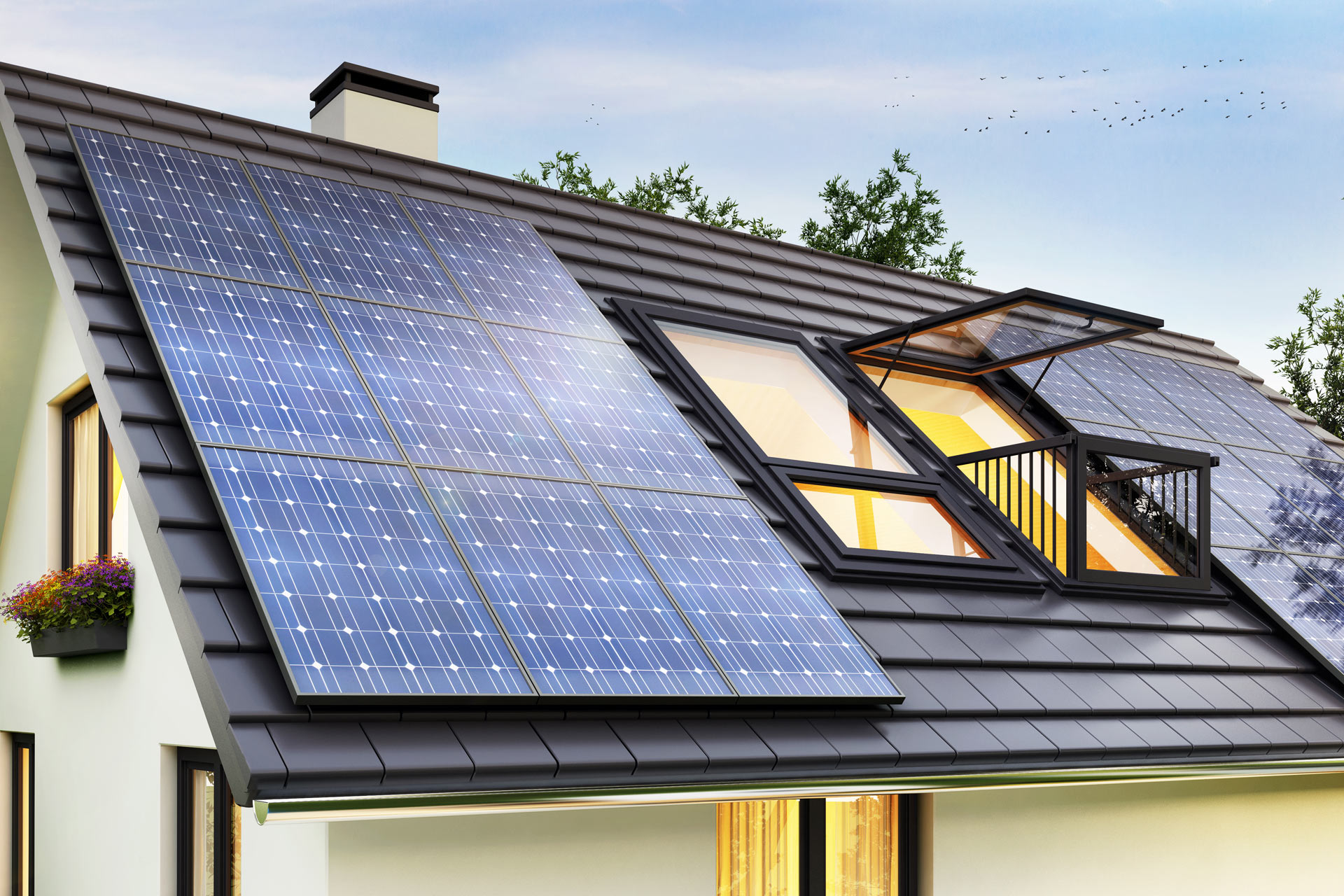
Getty Images
A typical terraced house needs around ten solar panels, which will cost around £8,000 and take around eight years to break even, but after that they will provide free electricity. If you’re concerned aesthetically, look into PV
slate solar tiles supplied by GB Sol. gb-sol.co.uk
Buy Organic And Single-Plastic Free
Abel & Cole launched Club Zero in 2020, whereby you can top up on dried goods like rice, pasta and nuts, which are sent in plastic boxes. You can then decant them into your glass jars at home and them send back. abelandcole.co.uk
Set Your Bathroom Cabinet Free
If, like me, you’re ashamed of your excess cosmetics, head over to the Toiletries Amnesty website, which has a directory of places from homeless shelters to women’s refuges who will willingly take your unused products. toiletriesamnesty.org


